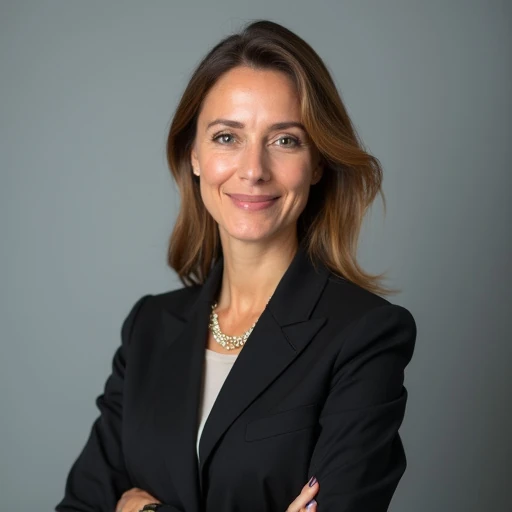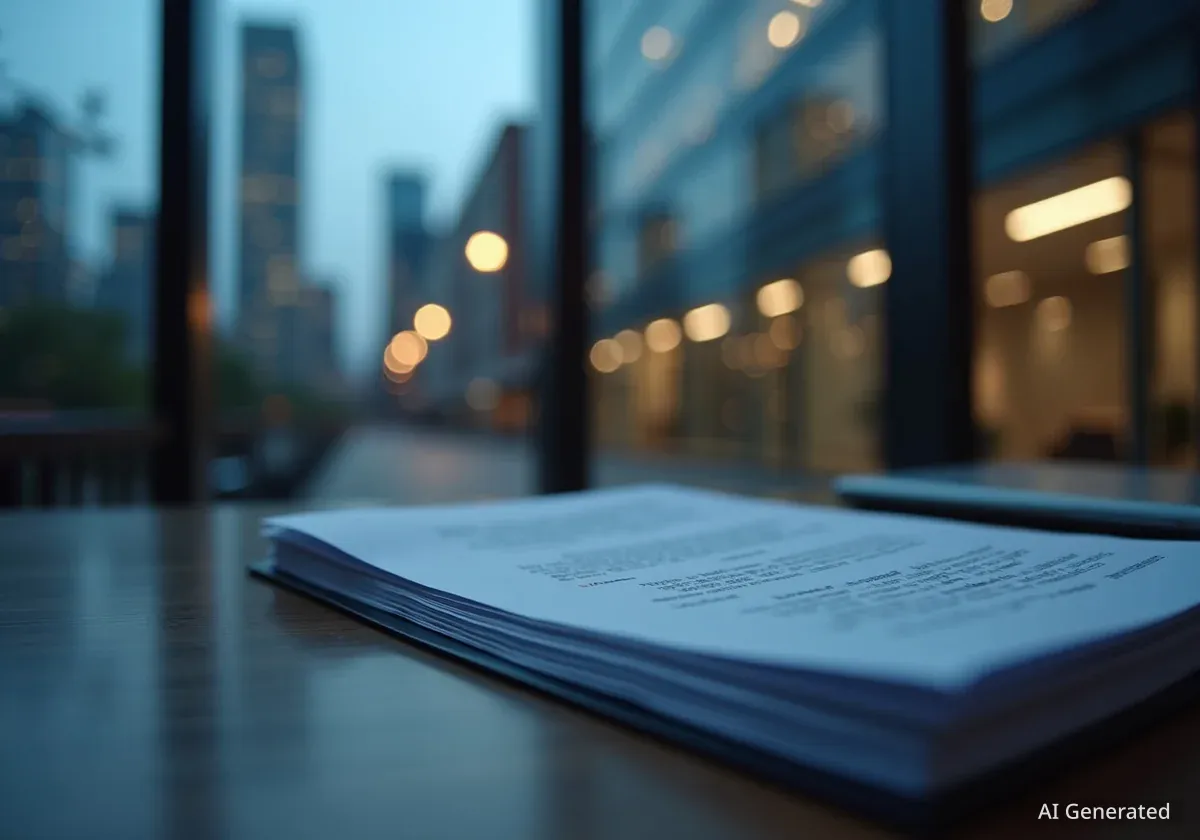Sergey Khotimskiy, a Russian banker, invested over $37 million in commercial properties across metro Atlanta between 2015 and 2022. These transactions involved various businesses, from well-known pubs to shopping centers. The nature of these deals and the subsequent transfer of assets after U.S. sanctions against Russia have drawn attention from investigators and property owners.
Key Takeaways
- Sergey Khotimskiy invested over $37 million in Atlanta real estate.
- Properties included a Virginia-Highland pub, a Buckhead nightclub, and an Alpharetta shopping center.
- Many sellers reported never meeting Khotimskiy directly.
- Asset transfers occurred swiftly before and after U.S. sanctions in 2022.
- Regulatory gaps in U.S. corporate transparency laws complicate tracking ownership.
Significant Investments in Metro Atlanta
Khotimskiy's real estate portfolio in Atlanta grew steadily over seven years. His initial investments included key commercial spaces in popular neighborhoods. In 2015, he spent nearly $4.7 million to acquire the building housing a well-known pub in Virginia-Highland. This was followed by a $4 million purchase of a nightclub space in Buckhead.
Further acquisitions demonstrated a diverse interest in commercial properties. He bought a converted movie theater on North Highland Avenue for $2.3 million, which served as a church sanctuary. Another $1.7 million was spent on a health food store location in Brookhaven. His largest single investment detailed was $5.6 million for an Alpharetta shopping center that included a Starbucks drive-thru.
Investment Snapshot
- Virginia-Highland Pub: $4.7 million (2015)
- Buckhead Nightclub Space: $4 million
- North Highland Avenue Church: $2.3 million
- Brookhaven Health Food Store: $1.7 million
- Alpharetta Shopping Center: $5.6 million
Seller Experiences and Limited Transparency
Several individuals who sold properties to Khotimskiy's associated LLCs stated they never met the buyer. This lack of direct interaction highlights a common practice in complex real estate deals, especially when foreign investors are involved. The transactions often occurred through intermediaries and corporate entities.
"It was like a ghost in the night," said Anton Kotz, who sold a Brookhaven property to Khotimskiy for $1.7 million in 2016. "The money was good and in the account, and the property transferred very quickly."
Doug Landau, owner of Neighbor's Pub, initially found Khotimskiy to be an appealing investor. Landau, who had sought to capitalize on the emerging real estate market in Virginia-Highland, described the banker as "an excellent businessman." He recalled Khotimskiy's eagerness to invest in the area.
Sanctions and Asset Transfers
The landscape of Khotimskiy's investments changed dramatically in 2022. Following Russia's invasion of Ukraine, the U.S. government imposed extensive sanctions on Russian elites and entities. Sergey Khotimskiy, known for his role in Sovcombank, one of Russia's largest privately owned banks, was included in these sanctions.
Background on Sanctions
In February 2022, the U.S. Treasury Department sanctioned Sovcombank, freezing its assets and cutting off its access to the U.S. financial system. This action was part of a broader effort to inflict economic pain on Russia in response to the invasion of Ukraine. Khotimskiy was personally sanctioned in March 2022.
Swift Asset Relocation
Before the sanctions fully took effect, Khotimskiy and his then-wife, Elena Baskina, began transferring assets. This included properties in Georgia and South Carolina. Public records show a complex series of transactions designed to move ownership of various holdings.
For example, in March 2022, Baskina transferred ownership of a Hilton Head property, valued at $5.9 million, to an LLC she solely controlled. She stated these moves were part of a divorce settlement and an effort to secure her financial independence.
"I wanted my sources of income based in the U.S.," Baskina said, explaining her reasons for the asset transfers. "I was given nothing in exchange."
This period of rapid asset transfer raised concerns among U.S. investigators. Kimberly Donovan, who led the U.S. Treasury's Financial Crimes Enforcement Network (FinCEN) at the time, noted that Russian oligarchs often moved assets to family members or close associates ahead of anticipated sanctions.
Challenges in Tracking Ownership
The U.S. system for corporate transparency has long faced criticism for its loopholes. States like Georgia allow for the creation of Limited Liability Companies (LLCs) without requiring public disclosure of their ultimate beneficial owners. This makes it difficult for authorities and the public to identify who truly owns a property or business.
A joint investigation by The Atlanta Journal-Constitution, The Post and Courier of South Carolina, and iStories, an independent Russian news outlet, highlighted these gaps. Reporters traced Khotimskiy's dealings across multiple states, reviewing property records, corporate filings, and court documents. Despite extensive research, understanding the full scope of his involvement often remained challenging.
Impact on Local Businesses
For local business owners like Doug Landau, the sanctions created unexpected difficulties. After learning Khotimskiy was sanctioned, Landau feared his rent payments could be seen as supporting a sanctioned individual. This led to a legal battle costing him nearly $50,000 in legal fees.
Landau eventually resolved the issue, but the experience underscored the hidden risks associated with complex ownership structures. His original landlord, Khotimskiy's LLC, transferred ownership to another LLC, further obscuring who ultimately controlled the property.
Another example involved a Buckhead nightclub space, which Khotimskiy's LLC rented to DS17 Lounge, owned by former Atlanta Hawks point guard Dennis Schröder. This property also saw legal disputes, including allegations of unpaid rent and health code violations. Khotimskiy's LLC eventually sold its stake in the space in 2021, before the sanctions were imposed.
The Broader Context of Russian Investment
Experts in anti-corruption and international economics note that the U.S. has often been a desirable destination for wealthy Russian investors. The robust property rights and relative stability of the U.S. economy made it an attractive place to park money, sometimes with little scrutiny of its origins.
Elena Ribakova, an expert at the Peterson Institute for International Economics, explained that it is difficult for Russian businesses to succeed without government connections. This often means wealthy Russians have ties to the state, making them potential targets for sanctions.
Concerns about transparency in U.S. corporate law have been discussed for years. In 2021, Congress passed the Corporate Transparency Act, aiming to address some of these issues. However, the implementation has been slow, and some critics argue the new rules do not go far enough. The law requires companies to report their beneficial owners to the Treasury Department, but this information is not publicly accessible.
John E. Smith, a former official with the U.S. Treasury Department's Office of Foreign Assets Control, emphasized the frustrating nature of these transparency gaps. He stated that it is "incredibly difficult" for enforcement agencies to track ownership when rules do not require clear disclosure.
As the U.S. continues to use economic sanctions as a foreign policy tool, the scrutiny on foreign investments and corporate transparency is likely to increase. The case of Sergey Khotimskiy's Atlanta real estate highlights the complex challenges in enforcing sanctions and understanding the true beneficiaries of international capital flows.





